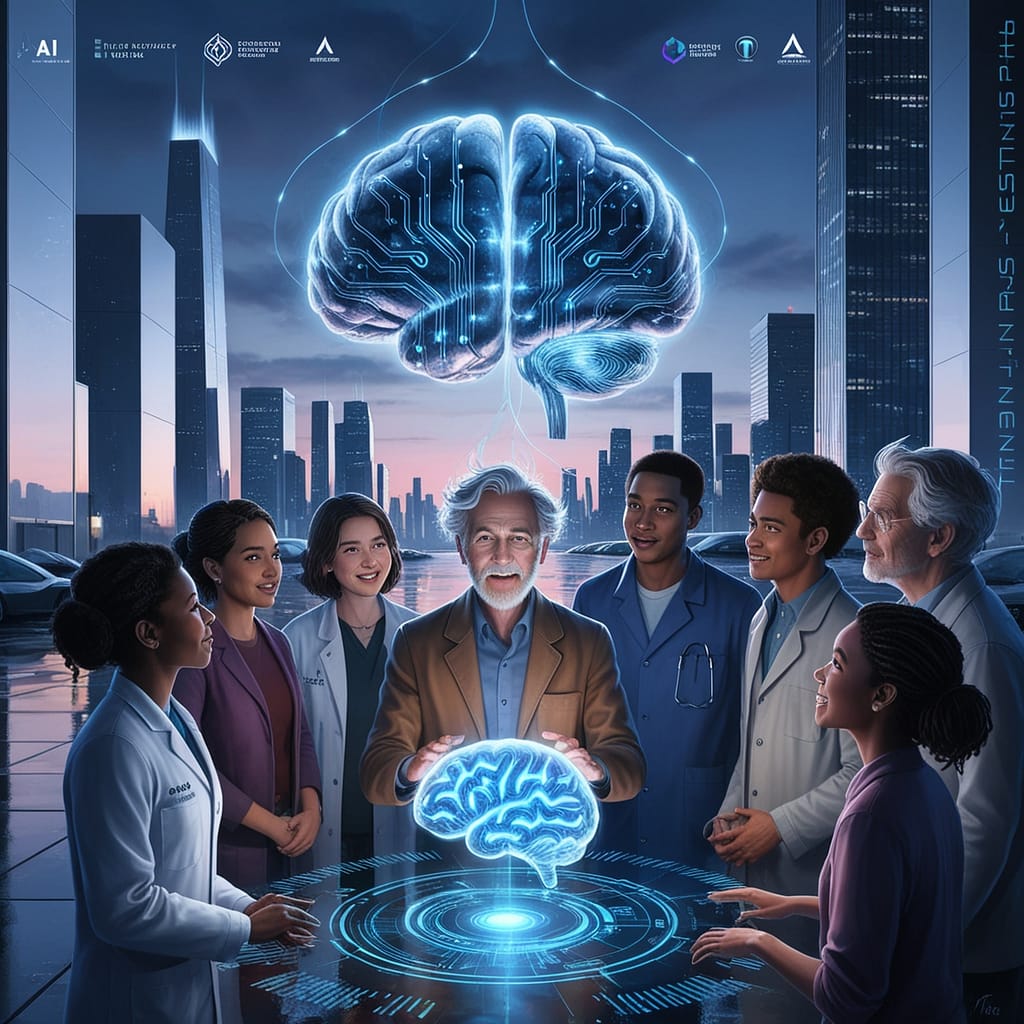In recent years, artificial intelligence (AI) has emerged as one of the most transformative technologies of our time. From personal assistants on smartphones to complex systems driving autonomous vehicles, AI is reshaping industries, enhancing productivity, and revolutionizing the way we live and work. This article delves into the impact of AI across various sectors, exploring both its potentials and challenges.
1. AI in Healthcare
AI is poised to revolutionize healthcare in numerous ways. Through machine learning algorithms, AI can analyze vast amounts of patient data to identify patterns and predict outcomes. This leads to more accurate diagnoses, personalized treatment plans, and improved patient care. For instance, AI-powered imaging systems can detect anomalies in X-rays and MRIs, aiding radiologists in making quicker and more accurate assessments.
Moreover, AI chatbots are streamlining patient interactions by providing instant responses to queries, scheduling appointments, and offering reminders for medications. These advancements not only enhance operational efficiency but also improve patient engagement.
2. AI in Finance
The financial sector is undergoing a significant transformation thanks to AI. Financial institutions use AI for fraud detection, risk assessment, and algorithmic trading. Machine learning models can analyze transaction data in real-time to flag unusual activities, thereby preventing fraud before it occurs.
Robo-advisors, powered by AI algorithms, offer personalized investment advice based on individual risk tolerances and financial goals. This democratizes wealth management, making it accessible to a broader audience that may not have the resources to hire a financial advisor.
3. AI in Transportation
Autonomous vehicles represent one of the most promising applications of AI in transportation. Companies like Tesla, Waymo, and others are developing systems that allow cars to navigate and make decisions without human intervention. This technology could reduce accidents, ease traffic congestion, and improve fuel efficiency.
In addition to autonomous cars, AI is being utilized to optimize logistics and supply chain management. AI algorithms can analyze traffic patterns and weather conditions to make real-time adjustments to delivery routes, leading to faster and more efficient shipping processes.

4. AI in Education
AI is transforming education by personalizing learning experiences for students. Adaptive learning technologies utilize AI to assess a student’s strengths and weaknesses, then adjust the curriculum accordingly. This ensures that each student progresses at their own pace, maximizing their potential.
AI-powered tools also assist educators in analyzing student performance data, providing insights into which teaching methods are most effective. Additionally, AI can automate administrative tasks, freeing up educators to focus more on teaching and mentoring.
5. Ethical Considerations and Challenges
While the potential benefits of AI are immense, there are significant ethical considerations and challenges that must be addressed. Concerns about data privacy, algorithmic bias, and job displacement are at the forefront of the AI discourse.
Algorithmic bias occurs when AI systems produce unfair or prejudiced outcomes due to biased training data. This can lead to discriminatory practices in hiring, law enforcement, and lending. Addressing these biases requires diverse data sets and ongoing oversight.
Job displacement due to automation is another concern. While AI can enhance productivity, it may also render certain jobs obsolete. A proactive approach, involving retraining and reskilling workers, is crucial to ensure a smooth transition into an increasingly automated workforce.
6. The Future of AI
As we look to the future, AI will continue to evolve and permeate more areas of our lives. The integration of AI with other technologies, such as the Internet of Things (IoT), is expected to create smart environments where devices communicate and make decisions autonomously.
Moreover, advances in natural language processing (NLP) will enhance human-computer interaction, making technologies more intuitive and user-friendly. We may see a future where AI can understand and respond to human emotions, leading to more empathetic and supportive interactions.

Conclusion
Artificial intelligence is undoubtedly one of the most transformative technologies of our era, with the potential to reshape industries, enhance productivity, and improve quality of life. However, as we embrace this technology, it is crucial to navigate the ethical challenges and ensure that AI serves as a force for good.
The future of AI promises exciting innovations, but accountability and societal engagement will be essential to harness its full potential while safeguarding humanity’s best interests. By addressing the challenges head-on, we can create an AI-driven world that enhances human capabilities and fosters a more equitable society.



